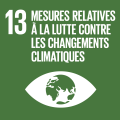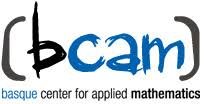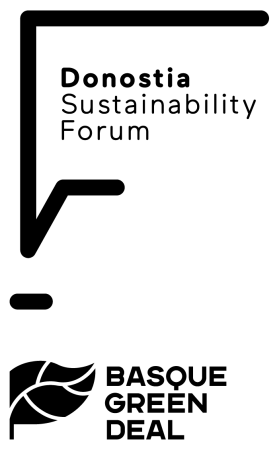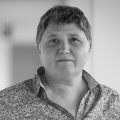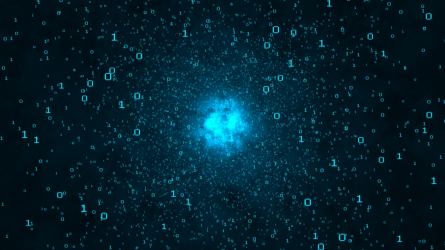
Artificial Intelligence for the Wellbeing and Sustainability of Societies
Descripción
Casi todo lo que se oye hoy en día sobre la inteligencia artificial es, en realidad, aprendizaje automático, y más concretamente, aprendizaje profundo. Esta categoría de algoritmos funciona utilizando la estadística para encontrar patrones en los datos, y ha demostrado ser inmensamente poderosa para imitar las habilidades humanas. Estas capacidades impulsan la búsqueda de Google, el canal de noticias de Facebook y el motor de recomendaciones de Netflix, y están transformando sectores como la sanidad y la educación.
Sin embargo, aunque el aprendizaje profundo ha dado a conocer la IA por sí solo, no representa más que un pequeño parpadeo en la historia de la búsqueda de la humanidad por replicar nuestra propia inteligencia. Lleva menos de 10 años en la vanguardia de ese esfuerzo. Cuando se amplía la perspectiva a la historia completa del campo, es fácil darse cuenta de que pronto podría estar en vías de extinción.
Este Curso de Verano proporcionará una visión más amplia sobre la Inteligencia Artificial, y se discutirá sobre las aplicaciones actuales, principalmente en el País Vasco, considerando también de forma crítica la necesidad de una visión global más completa de la IA, que promueva la sostenibilidad y la equidad y asegure un acceso más democrático a estas tecnologías, más allá del estado de la técnica liderada por los gigantes de Internet.
Este Curso de Verano será organizado conjuntamente por el BC3, Basque Centre for Climate Change y el BCAM, Basque Center for Applied Mathematics.
Objetivos
Dar a conocer a los y las estudiantes y a las personas no expertas las tecnologías impulsadas por la IA (más allá del Aprendizaje Automático).
Demostrar aplicaciones concretas de la IA, posiblemente relacionadas con el bienestar y la sostenibilidad de las sociedades.
Vivir una experiencia en vivo con estas tecnologías innovadoras; (un ejemplo en vivo de las herramientas, más que una práctica).
Compartir reflexiones sobre cómo se ha desarrollado la IA hasta ahora y qué podemos esperar en el futuro.
Público objetivo al que está dirigida la actividad
- Alumnado universitario
- Estudiantes no universitarios
- Profesorado
- Profesionales
- Público en general
Programa
09-06-2021
Session 1: Technology
Presentación por parte de la Dirección de la actividad
- Aritz Pérez Basque Center for Applied Mathematics (BCAM) - Researcher
- Ferdinando Villa Basque Centre for Climate Change (BC3) - Ikerbasque professor
“Artificial Intelligence Introduction“
- Stefano Balbi Basque Centre for Climate Change (BC3) - Ikerbasque research fellow
“Artificial Intelligence for a Sustainable Planet“
- Simone Langhans Basque Centre for Climate Change (BC3) - Researcher
Pausa
“On the use of Ontologies for Smart and resilient cities“
- Maria Cristina Marinescu Barcelona Supercomputing Centre (BSC) - Researcher
“ Intelligent systems for Geosciences and Sustainability “
- Ferdinando Villa Basque Centre for Climate Change (BC3) - Ikerbasque professor
10-06-2021
Session 2: Applications
“AI for Human Wellbeing “
- Aurelia Bustos Moreno Medbravo - Co-founder & CTO
“ Artificial intelligence in marine sciences“
- Jose Antonio Fernandes Azti - Senior data scientist
Pausa
“ Machine learning for the new era of the industry“
- Alberto Díez Oliván Tecnalia - Senior data scientist
“ Improving the security of industry using artificial intelligence“
- Raúl Orduna Urrutia Vicomtech - Digital security director
11-06-2021
Session 3: Live Showing of Laboratory Tools that employ Artificial Intelligence
“Live Showing: k.LAB“
- Ferdinando Villa Basque Centre for Climate Change (BC3) - Ikerbasque professor
“Live Showing: Scikit-learn“
- Aritz Pérez Basque Center for Applied Mathematics (BCAM) - Researcher
Pausa
Mesa Redonda: “Final Reflections: “Artificial intelligence is too important to leave it to the Internet Giants” “
- María José Sanz Sánchez Basque Centre for Climate Change (BC3) - Scientific director (Modera)
- David Jensen UNEP - Digital transformation coordinator
- Nuria Oliver European Laboratory for Learning and Intelligent Systems (ELLIS) - Co-founder & Vicepresident
- Cristina Murillo Gómez GAIA - Cluster services manager
Directoras/es
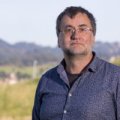
Ferdinando Villa
Basque Centre for Climate Change (BC3), Ikerbasque professor
Dr. Villa started out as a Theoretical Ecologist and had a long parallel career as a Scientific Software Designer and Engineer. After carrying out research in many fields of Ecology, he worked for 15 years in ecological economics at the universities of Maryland and Vermont. He has authored or coauthored 150+ scientific publications, and has been recipient of major research grants from the US National Science Foundation, the European Union, the UK Natural Environment Research Council (NERC), UNEP-WCMC and other institutions and NGOs.
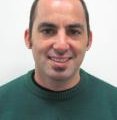
Aritz Pérez
Basque Center for Applied Mathematics (BCAM), Researcher
In 2007, Dr. Pérez co-founded K.B. Data Mining S.L., a company focused on the application of Machine Learning, Data Mining and optimization techniques to problems of biotechnology and industry, and he was the research manager until 2010. In 2010, Dr. Pérez finished his European thesis in the Intelligent System Group (UPV/EHU) about supervised classification with Bayesian networks in domains with mixed variables. He was a researcher at the Department of Computer Sciences and Artificial Intelligence from 2010 to 2014. Since 2011, Dr. Pérez has been an invited lecturer in the Master of Computational Engineering and Intelligent Systems of UPV/EHU. He has been a postdoctoral fellow at the Basque Center of Applied Mathematics (BCAM), from 2014. Since 2017, Dr. Pérez is a member of Join Research Lab with the participation of UPV/EHU, BCAM and Tecnalia Research & Innovation.
Ponentes
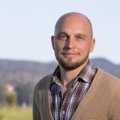
Stefano Balbi
BC3. Basque Centre for Climate Change, Ikerbasque research fellow
Since completing his Master’s in Environmental Economics, Dr. Balbi has studied human-natural systems interactions from a holistic perspective, where theories and approaches from both social and environmental scientific practice are integrated to better represent behaviors, spatial dependencies and temporal dynamics. This led him to pursue a PhD in Analysis and Governance of Sustainable Development and to direct his interests towards research in human geography, to explore the complexity of social-ecological systems.
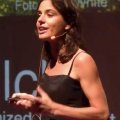
Aurelia Bustos Moreno
Medbravo, Co-founder & CTO
Dr. Bustos is a Medical Oncologist and a Computer Science Engineer, with a PhD in Artificial Intelligence. With decades of experience as a medical doctor, she decided to study computer science and bring the two disciples together to further investigate how technology could help patients. She co-founded Medbravo, a platform to help research in cancer using technology, specifically deep learning, and she’s was awarded in 2019 the Civil Merit Award by the King of Spain Felipe VI as recognition of her efforts.
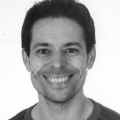
Alberto Díez Oliván
Senior Data Scientist, TECNALIA
Dr. Díez-Oliván is a senior data scientist with more than 10 years of experience with machine learning applications. He received a Computer Science degree at UPV/EHU in 2006 and a M.Sc. in Computer Sciences and Artificial Intelligence in 2009 from the same University. He received his PhD degree in Robotics and Automation from the Technical University of Madrid in 2017, being his thesis related to machine learning methods and applications for data-driven prognostics. He entered Fatronik with the Iñaki Goenaga Research Fellowship in 2006 and in 2015 he did an internship at the NICTA’s machine learning research group in Sydney (Australia). Nowadays he works as a senior data scientist in the TECNALIA’s Industry & Transport Division. He has been involved in the design and development of intelligent applications in several R&D projects, addressing challenging data-driven problems.
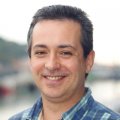
Jose Antonio Fernandes
Azti, Senior data scientist
Dr. Fernandes is a data scientist from computing and artificial intelligence studies with the skills and experience needed to translate the data into valuable information for marine research. These skills are curiosity, biological and oceanographic expertise, economic knowledge, ability to find information, understanding of statistics and machine learning and multidisciplinary communicative skills. Latest work and future line of research is about mitigation of impacts and long-term sustainability of fisheries using the above skills. This line of research contributes to address the Spanish Science and Technology Strategy challenges number 2 (bioeconomy), 5 (climate change) and 7 (digital society). It also aligns with SDG 14 challenge (ocean sustainability).
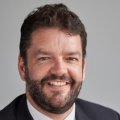
David Jensen
UNEP, Digital transformation coordinator
David is currently heading the Digital Transformations for Environmental Sustainability programme at UNEP. In this capacity, he is also leading UNEP’s co-championship of the new Coalition for Digital Environmental Sustainability (CODES) that is part of the UN Secretary General’s Digital Cooperation Roadmap. He holds an M.Sc. in Biology from Oxford University (UK) and an undergraduate degree in Geography from the University of Victoria (Canada). He is an Alumnus of the Peace Mediation Platform (Swiss Federal Department of Foreign Affairs) and a Beahrs’ Environmental Leadership Fellow at the University of California, Berkeley.
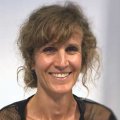
Simone Langhans
Basque Centre for Climate Change (BC3), Researcher
Dr. Langhans is a Marie Slodowska Curie Fellow at the University of Otago in Dunedin, New Zealand and BC3. She holds a Diploma in Natural Sciences, a MSc in Advanced Studies in Secondary and Higher Education, and a Doctor of Sciences from the Swiss Federal Institute of Technology in Zurich (ETH). Throughout her academic career, she has constantly broadened her expertise by joining research groups around the world. Besides academia, Dr. Langhans has experience working within government settings, having led the Swiss-wide development of river quality assessments for a few years after her PhD.
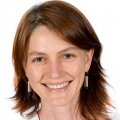
Maria Cristina Marinescu
Barcelona Supercomputing Centre (BSC), Researcher
Dr. Marinescu has a PhD in Computer Science from UCSB. After a 1.5 years Postdoc at MIT she moved to IBM Research, and then back to Europe as a Visiting Professor in Madrid. She is currently working as a senior researcher at BSC in Barcelona.
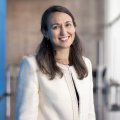
Cristina Murillo Gómez
GAIA, Cluster services manager
Dr. Murillo has a degree in Business and Economic Sciences, University of the Basque Country/Euskal Herriko Unibertsitatea in San Sebastian. Master in System Development in Internet Environments. Master in Social Entrepreneurship, Leadership and Open Innovation. She is the president at the European level of the Smart City Tech alliance and Vice-president at the national level of the National Federation of Innovative Business Groups and Clusters. She represents GAIA in European and international alliances. She defines, designs and develops projects that directly or indirectly satisfy the needs of associated companies and other clients, as well as GAIA's internal needs. (regional, national and international). She coordinates the secretary of the artificial intelligence working group called AIBasque.
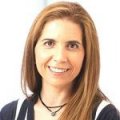
Nuria Oliver
ELLIS, The European Laboratory for Learning and Intelligent Systems, Cofounder and Vicepresident
Dr. Oliver is a computer scientist. She is Chief Scientific Adviser at the Vodafone Institute, Chief Data Scientist at DataPop Alliance, an independent director on the board of directors of Bankia, and Commissioner of the Presidency of Valencia for AI and COVID-19. Previously, she was Director of Data Science Research at Vodafone, Scientific Director at Telefónica and researcher at Microsoft Research. She holds a PhD from the Media Lab at MIT, and is an IEEE Fellow, ACM Fellow, a member of the board of ELLIS, and elected permanent member of the Royal Academy of Engineering of Spain.
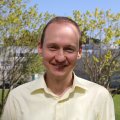
Raúl Orduna Urrutia
Vicomtech, Cybersecurity director
Dr. Orduna has a degree in Computer Science Engineering and a Diploma of Advanced Studies in the Complex Systems from UPV / EHU. He also has a PhD in the area of Computer Science and Artificial Intelligence by UPNA. Besides being Cybersecurity Director at Vicomtech, he is associate professor at UPNA.
Directora Científica de BC3, Basque Center for Climate Change desde enero de 2016. Doctorado en Ciencias Biológicas por la Universidad de Valencia (1991) y con experiencia en varias áreas científicas como Ecofisiología, Efectos de la contaminación del aire, Plantas inferiores y superiores, Dinámica y química atmosférica, Ciclos del nitrógeno y del carbono, Gases de efecto invernadero y otros gases relacionados, Gas de efecto invernadero inventarios, UTCUTS y REDD +. Ha estado fuertemente involucrada en la dimensión política del Cambio Climático, guiando decisiones políticas llevadas a cabo en centros como la FAO (Organización de las Naciones Unidas para la Alimentación y la Agricultura) o la CMNUCC (Convención Marco de las Naciones Unidas sobre el Cambio Climático). Tiene experiencia en procesos multilaterales, marcos regulatorios, medidas de políticas e instrumentos de Política de Cambio Climático, y lideró la implementación de diferentes programas con un enfoque multidisciplinar.
Resumen
Conclusiones remitidas por la dirección del Curso de Verano
Objetivos de desarrollo sostenible
Desde UIK queremos aportar a la consecución de los Objetivos de Desarrollo Sostenible (ODS) 2030. Para ello, hemos identificado a qué objetivos contribuyen nuestros programas. Puedes consultar los objetivos a continuación.
La Agenda 2030 es la nueva agenda internacional de desarrollo que se aprobó en septiembre de 2015 en el seno de Naciones Unidas. Esta Agenda pretende ser un instrumento para la lucha a favor del desarrollo humano sostenible en todo el planeta, cuyos pilares fundamentales son la erradicación de la pobreza, la disminución de las vulnerabilidades y las desigualdades, y el fomento de la sostenibilidad. Es una oportunidad única para transformar el mundo antes del 2030 y garantizar los derechos humanos para todas las personas. Esta agenda marca 17 objetivos.
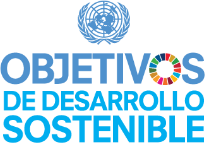
13 - Acción por el clima
Adoptar medidas urgentes para combatir el cambio climático y sus efectos. Cuestiones clave: mitigación, resiliencia y capacidad de adaptación, planificación, estrategias y planes nacionales, educación y sensibilización, reducción de efectos y alerta temprana, , cumplimiento de la Convención Marco de las Naciones Unidas sobre el Cambio Climático.
Más información